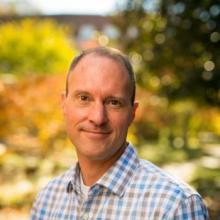Goals for Enhancing DR’s Impact
I am honored and excited to be entering my term as the incoming President of the Division for Research. I very much value our research community and all the work done by members of this community to support individuals with disability, their family members, and educators. I also want to thank the previous leaders of DR and the incredible members of the presidential line and executive committee. A special thanks to Kathleen Lane who has been an incredible mentor and role model during her tenure as President.
In thinking about goals for this upcoming year, I reflected on a piece written by Barbara McKenna in Educational Researcher (Vol. 21, No. 5) in 1992. In this article, she highlighted the career of Marty Kauffman—what resonated with me were his desires to establish better linkages and his goal of making sure that research moves beyond being useful to being usable… as Marty emphasized “We’ve got to get to usable.”
Using Marty’s words as a jumping off point for this year, as President, I hope to focus our Division around four issues:
- Diversity – Project 20/20, led by Drs. Endia Lindo and LaRon Scott (https://exceptionalchildren.org/project2020) is focused on reaffirming CEC’s commitment to social justice and equity. I would like to push our division to increase the diversity of our membership; to evaluate how we can use our community to support the needs of students with disabilities who are BIPOC, ELL, queer, and from other marginalized groups; and to encourage members to reflect on ways we can include a more diverse group of community members in our research efforts.
- Connections – We are stronger together than apart. I would like to spend the upcoming year deepening connections between DR and other divisions. In some candid conversations with other CEC leaders this year, one person reflected an opinion that the CEC community has become over-represented by academics, with less of a voice coming from individuals with disability, their family members, and their educators. I would like DR to work to broaden our membership to include members outside of academia—and I would like DR to establish stronger partnerships with other divisions that include members outside of academia. Relatedly, I would like to continue strengthening the ties that DR has with the National Center for Special Education Research within the Institute of Education Sciences and with other funding agencies who support research in the area of special education.
- Usability – The ivory tower is a lovely place to be; however, the reason most of us belong to DR is because we care about improving outcomes for students with disabilities, their family members, and their educators. I intend on organizing a group of individuals who can provide guidance to our DR members regarding advances in designing and disseminating our research to ensure that we are having the broadest impact. A call for participation will be forthcoming. Social media and other technology-based outlets have great potential to help us bridge research-to-practice gaps. And, as I am nearing my fifth decade of life, I know that there are many other people (mostly much younger, but also some talented folks probably older!) who have a wealth of information to share.
- Advocacy – A few years ago a group of colleagues and I wrote a paper with a lofty set of goals for the field of special education. One reviewer pushed back noting that we complained about the current state of affairs and suggested that how we educate students with disabilities could be better without offering any actionable steps to move in this direction. Point well taken. Advocacy and getting involved with the messy aspects of legislation and lobbying—both at the national and local levels—is precisely what DR members need to do. The Special Education Legislative Summit (https://exceptionalchildren.org/sels) is one way to get involved in this arena. However, I think it is likely that DR could enhance our efforts to ensure that legislators view our members as a resource and that we can energize our members to increase their advocacy efforts.
I very much look forward to working the DR and CEC leadership and other members to advance these goals during my year as President. I would greatly appreciate any advice, suggestions, or other input for how we might accomplish these aims. Feel free to email me at chris.lemons@stanford.edu. Thank you all for the amazing work you do to ensure that rigorous, meaningful research is used to guide how we support individuals with disabilities, their family members, and their educators.
